Shows

Almond JourneyEpisode 89: The Economics of Stewardship with Kabir TumberKabir Tumber joined the Journey to discuss his background in economics and retail, and how that informs him in his current role in supply chain strategy at Blue Diamond Growers. Tumber grew up on a family farm in Yuba City where his family grew peaches, walnuts and prunes. After earning a bachelor’s and master's in economics from UC Davis, he worked as a consultant at the intersection of agriculture, water and economics.“I think the best transfer of knowledge is amongst the grower community. Hearing from those early adopters of, ‘Hey, this is my experience, and this i...
2025-11-0623 min
ConnversationsZoe 💚Welcome to the very FIRST episode of Connversations - a mental health podcast, hosted by myself (Finn Tumber) through Take The Conn, that has TWO main core aims:1. Encourage and normalise mental health conversations through having genuine and unfiltered chats (notice how we've stopped bleeping swear words 😉)2. Encourage the guest to share any coping mechanisms/words of inspiration that has helped them deal with their own mental health for the viewer/listener.Overall, we plan that through this podcast, we can show the viewer that it can be very normal to get deep abo...
2025-08-241h 10
Hops and HedgesEp.45. Randy Tumber, Randy Tumber Landscape ConsultingIn this episode, I'm talking with Randy Tumber from Randy Tumber Landscape Consulting in Amaranth, Ontario.
We're talking about working with your "niche market", the importance of WATER in the landscape, winning the Dunnington Grubb Award - TWICE!, being a keynote speaker, the importance of learning the Latin plant names, the International Patio Expo, finding the "right fit client", Landscape Ontario, and of course - BEER!
BEERS etc.:
Red Wine - Los Vascos Cromas (Chile)
Collective Arts IPA from Hamilton, ON.
BOOK RECOMMENDATIONS:
"...
2024-11-2150 min
ConnversationsLife as a Neurodivergent - With Finn TumberHello people, and welcome to another episode of The Conn'Cast Podcast! This is one you've all been waiting for (and repeatedly asking for!) Co-host Cameron Ralph has kindly taken the hot seat as host in this episode to have an honest chat between two friends as we discuss our mental health and struggles throughout our lives. I myself (Finn), open up about about my ASD and ADHD diagnosis at the age of around 4, and how this has shaped me as a person and affected my mental health throughout my life. It feels like such a...
2024-10-2057 min
ConnversationsDiscussing Conn and Grief, Along With Coping Mechanisms - With Connor Barkley-RogersTrigger warning: This episode mentions themes involving suicide - listen with care. Hey guys, welcome to another episode of The Conn'Cast Podcast! In this episode, we are joined by our very special guest Connor Barkley-Rogers, who happened to be very close friends with my brother Connor, whom this podcast is centred around. So me and Connor have quite a long and deep conversation surrounding our experiences with Conn, both before and after his passing, and the coping mechanisms we found to deal with the grief from this. Connor also shares some techniques he uses to...
2024-09-1540 min
ConnversationsDealing with Anxiety and Grief - with Cameron RalphHey guys, welcome to the very FIRST episode of The Conn'Cast Podcast!In this episode, my very close friend, Cameron, talks all about his mental health struggles throughout his life - starting from anxiety in childhood and how this has developed into early adulthood and his career as an actor. We also discuss grief, and how this has affected Cam more recently.We also discuss ways/techniques as to how Cam has managed to deal with his mental health struggles throughout his life, so please stick around and hopefully something that...
2024-09-0139 min
Space and TimeAlan Watts: You're It! On Hiding, Seeking, and Being Found.**"You're It!: On Hiding, Seeking, and Being Found"** is a collection of essays and lectures by Alan Watts, offering insights into human nature, consciousness, and the experience of self-discovery. Alan Watts, a renowned British philosopher, was known for his ability to interpret and convey Eastern philosophies to Western audiences.
Here are some key points about the book:
1. **Author Background**: Alan Watts (1915-1973) was an influential philosopher and writer who specialized in making Eastern philosophy accessible to Western readers. He wrote extensively on Zen Buddhism, Taoism, and other aspects of...
2024-07-0912h 05
Space and TimeAlan Watts Myself A Case Of Miataken Identity Part 6"**Myself: A Case of Mistaken Identity**" is a book by Alan Watts, a British philosopher known for his work in interpreting and popularizing Eastern philosophy for Western audiences. Alan Watts wrote extensively on topics such as Zen Buddhism, Taoism, and the nature of consciousness.
Here are some key points about the book:
1. **Author Background**: Alan Watts (1915-1973) was a prolific writer, speaker, and thinker who had a profound influence on Western understanding of Eastern philosophy. He authored more than 25 books and numerous articles, and he was known for his...
2024-07-0225 min
Space and TimeAlan Watts Myself A Case Of Mistaken Identity Part 5"**Myself: A Case of Mistaken Identity**" is a book by Alan Watts, a British philosopher known for his work in interpreting and popularizing Eastern philosophy for Western audiences. Alan Watts wrote extensively on topics such as Zen Buddhism, Taoism, and the nature of consciousness.
Here are some key points about the book:
1. **Author Background**: Alan Watts (1915-1973) was a prolific writer, speaker, and thinker who had a profound influence on Western understanding of Eastern philosophy. He authored more than 25 books and numerous articles, and he was known for his...
2024-07-0224 min
Space and TimeAlan Watts Myself A Case Of Mistaken Identity Part 4"**Myself: A Case of Mistaken Identity**" is a book by Alan Watts, a British philosopher known for his work in interpreting and popularizing Eastern philosophy for Western audiences. Alan Watts wrote extensively on topics such as Zen Buddhism, Taoism, and the nature of consciousness.
Here are some key points about the book:
1. **Author Background**: Alan Watts (1915-1973) was a prolific writer, speaker, and thinker who had a profound influence on Western understanding of Eastern philosophy. He authored more than 25 books and numerous articles, and he was known for his...
2024-07-0225 min
Space and TimeAlan Watts Myself A Case Of Mistaken Identity Part 3"**Myself: A Case of Mistaken Identity**" is a book by Alan Watts, a British philosopher known for his work in interpreting and popularizing Eastern philosophy for Western audiences. Alan Watts wrote extensively on topics such as Zen Buddhism, Taoism, and the nature of consciousness.
Here are some key points about the book:
1. **Author Background**: Alan Watts (1915-1973) was a prolific writer, speaker, and thinker who had a profound influence on Western understanding of Eastern philosophy. He authored more than 25 books and numerous articles, and he was known for his...
2024-07-0226 min
Space and TimeAlan Watts Myself A Case Of Mistaken Identity Part 2"**Myself: A Case of Mistaken Identity**" is a book by Alan Watts, a British philosopher known for his work in interpreting and popularizing Eastern philosophy for Western audiences. Alan Watts wrote extensively on topics such as Zen Buddhism, Taoism, and the nature of consciousness.
Here are some key points about the book:
1. **Author Background**: Alan Watts (1915-1973) was a prolific writer, speaker, and thinker who had a profound influence on Western understanding of Eastern philosophy. He authored more than 25 books and numerous articles, and he was known for his...
2024-07-0225 min
Space and TimeAlan Watts Myself A Case Of Mistaken Identity Part 1"**Myself: A Case of Mistaken Identity**" is a book by Alan Watts, a British philosopher known for his work in interpreting and popularizing Eastern philosophy for Western audiences. Alan Watts wrote extensively on topics such as Zen Buddhism, Taoism, and the nature of consciousness.
Here are some key points about the book:
1. **Author Background**: Alan Watts (1915-1973) was a prolific writer, speaker, and thinker who had a profound influence on Western understanding of Eastern philosophy. He authored more than 25 books and numerous articles, and he was known for his...
2024-07-0226 min
Space and TimeThe Communist Manifesto, by Karl Marx and Friedrich Engels. Part 3Karl Marx (1818-1883) was a German philosopher, economist, and political theorist best known for his critique of capitalism and his influential works on socialism and communism. Along with Friedrich Engels, he authored "The Communist Manifesto" (1848), which outlined the principles of communism and called for the proletariat (working class) to overthrow the bourgeoisie (capitalist class). His seminal work, "Das Kapital" (1867), provided a detailed analysis of capitalist economics and its inherent inequalities. Marx's ideas laid the foundation for modern socialism and communism, profoundly influencing political movements and theories worldwide.
2024-06-2029 min
Space and TimeThe Communist Manifesto, by Karl Marx and Friedrich Engels. Part 2Karl Marx (1818-1883) was a German philosopher, economist, and political theorist best known for his critique of capitalism and his influential works on socialism and communism. Along with Friedrich Engels, he authored "The Communist Manifesto" (1848), which outlined the principles of communism and called for the proletariat (working class) to overthrow the bourgeoisie (capitalist class). His seminal work, "Das Kapital" (1867), provided a detailed analysis of capitalist economics and its inherent inequalities. Marx's ideas laid the foundation for modern socialism and communism, profoundly influencing political movements and theories worldwide.
2024-06-2027 min
Space and TimeThe Communist Manifesto, by Karl Marx and Friedrich Engels Part 1Karl Marx (1818-1883) was a German philosopher, economist, and political theorist best known for his critique of capitalism and his influential works on socialism and communism. Along with Friedrich Engels, he authored "The Communist Manifesto" (1848), which outlined the principles of communism and called for the proletariat (working class) to overthrow the bourgeoisie (capitalist class). His seminal work, "Das Kapital" (1867), provided a detailed analysis of capitalist economics and its inherent inequalities. Marx's ideas laid the foundation for modern socialism and communism, profoundly influencing political movements and theories worldwide.
2024-06-2039 min
Space and Time"Ripples of Wisdom: Dialogues on Alan Watts' Houseboat, February 1967"In February 1967, amidst the gentle lapping of water against Alan Watts' houseboat, a gathering of brilliant minds unfolded. Timothy Leary, Gary Snyder, and Allen Ginsberg convened on this floating sanctuary, engaging in a dialogue that transcended time and space. Amidst the tranquil backdrop of the water, they delved into the depths of consciousness, exploring the intersections of Eastern philosophy, Western exploration, and the mysteries of existence. Their conversation echoed with the resonance of wisdom, offering glimpses into a world where intellect and spirituality intertwined, leaving ripples of enlightenment in their wake.
2024-03-151h 26 2024-02-2112 min
2024-02-2112 min 2024-01-1558 min
2024-01-1558 min
Space and Time"Alan Watts" Special: Part 1 with Gary Baca"Alan Watts" Special: Part 1 with Gary Baca
2024-01-1059 min
Space and TimeJohn Steele - with Terence Mckenna - Memory - Part 2Terence McKenna was born on November 16, 1946, in Paonia, Colorado, and passed away on April 3, 2000. He was an American ethnobotanist, philosopher, author, and advocate for the responsible use of psychedelic substances. McKenna's intellectual pursuits led him to explore the intersections of consciousness, shamanism, and the impact of psychedelics on human evolution.
He gained prominence for his "Stoned Ape Theory," proposing that the use of psychedelic mushrooms played a role in the evolution of human cognition. McKenna's engaging speaking style and prolific writing, including books like "Food of the Gods" and "The Archaic Revival," made him...
2023-11-091h 12
Space and TimeJohn Steele - w Terence Mckenna - Memory - Part 1Terence McKenna was born on November 16, 1946, in Paonia, Colorado, and passed away on April 3, 2000. He was an American ethnobotanist, philosopher, author, and advocate for the responsible use of psychedelic substances. McKenna's intellectual pursuits led him to explore the intersections of consciousness, shamanism, and the impact of psychedelics on human evolution.
He gained prominence for his "Stoned Ape Theory," proposing that the use of psychedelic mushrooms played a role in the evolution of human cognition. McKenna's engaging speaking style and prolific writing, including books like "Food of the Gods" and "The Archaic Revival," made him...
2023-11-091h 12
Space and Time"The Hashish Eater" Narrated by: Terence McKenna"The Hashish Eater" Narrated by: Terence McKenna, is a poem written by American poet and fiction writer Clark Ashton Smith. It was first published in 1922. The poem is a surreal and vivid exploration of altered states of consciousness induced by the consumption of hashish, a psychoactive drug derived from the Cannabis plant. Smith was associated with the literary movement known as "Weird Tales," and his work often delved into fantastical and otherworldly themes. "The Hashish Eater" is considered one of his most famous and enduring works, showcasing his unique blend of decadent and mystical imagery. The poem takes the...
2023-11-0923 min
What Works: The Future of Local NewsEpisode 66 | Catherine TumberDan and Ellen talk with Catherine Tumber, who was a former colleague of Dan's at The Boston Phoenix, a longtime friend, and a source for his 2013 book, "The Wired City." These days she's an independent scholar and journalist who's affiliated with the Penn Institute for Urban Research. She's also a fellow at the MassINC Gateway Cities Innovation Institute and a contributing editor for The Baffler. She is the author of "Small, Gritty, and Green: The Promise of America's Smaller Industrial Cities in a Low-Carbon World." She holds a PhD and a master's degree from the University of R...
2023-09-3048 min
Space and TimeTerence Mckenna - "Food of the Gods: The Search for the Original Tree of Knowledge A Radical History of Plants, Drugs, and Human Evolution""Food of the Gods: The Search for the Original Tree of Knowledge A Radical History of Plants, Drugs, and Human Evolution" is a book written by Terence McKenna, a renowned ethnobotanist, writer, and advocate of psychedelic substances. The book was published in 1992 and explores the relationship between human beings and psychoactive plants throughout history.
In "Food of the Gods," Terence McKenna presents a theory that early humans' interaction with certain plants and their psychoactive compounds played a significant role in the evolution of human consciousness, culture, and cognitive development. McKenna suggests that the consumption of these plants...
2023-08-2658 min
Space and TimeAlan Watts - Part 2: Sex in the ChurchThe topic of sex and its role in religious institutions, including the church, has been a subject of discussion and controversy throughout history. Different religions and denominations have diverse views on sexuality, celibacy, marriage, and sexual ethics.
Some churches have strict guidelines on sexual conduct for their clergy, emphasizing celibacy or chastity as a way to devote themselves entirely to their religious calling. In contrast, others embrace the idea of a healthy and respectful approach to sexuality within the context of marriage and committed relationships.
It's essential to recognize that discussions about sex, religion, and...
2023-08-0326 min
Space and TimeAlan Watts - Part 1: Sex in the ChurchThe topic of sex and its role in religious institutions, including the church, has been a subject of discussion and controversy throughout history. Different religions and denominations have diverse views on sexuality, celibacy, marriage, and sexual ethics.
Some churches have strict guidelines on sexual conduct for their clergy, emphasizing celibacy or chastity as a way to devote themselves entirely to their religious calling. In contrast, others embrace the idea of a healthy and respectful approach to sexuality within the context of marriage and committed relationships.
It's essential to recognize that discussions about sex, religion, and...
2023-08-0326 min
Space and TimeAlan Watts - NonsenseAlan Watts was a prominent philosopher, writer, and speaker known for his work in popularizing Eastern philosophy and spirituality in the Western world during the mid-20th century. He explored various concepts related to the nature of reality, the self, and human consciousness. Watts had a unique way of expressing complex philosophical ideas in a more accessible and engaging manner.
2023-08-0328 min
Space and TimeAlan Watts: Daylight savings and GodAlan Watts had diverse perspectives regarding the topic of God. He did not adhere to any specific religious dogma, but he explored spirituality and the nature of the divine in various ways. He often emphasized the interconnectedness of all things and the idea that life and the universe are in a constant state of flux. Watts had a deep appreciation for Eastern philosophies, particularly Zen Buddhism, and he often compared them to Western religious and philosophical traditions.
2023-08-0251 min
Space and TimeTerence McKenna Discussing, "Eros and the Eschaton""Eros and the Eschaton" is a phrase that originates from ancient Greek philosophy and has been used in various contexts throughout history. "Eros" refers to the Greek god of love, desire, and attraction, while "eschaton" comes from the Greek word eschatos, meaning "last" or "end."
In the context of philosophy and theology, "Eros and the Eschaton" is often associated with the idea of the ultimate fulfillment or culmination of love and desire. It can represent the concept of a final or ultimate state of existence, often associated with transcendence, enlightenment, or the realization of a higher spiritual...
2023-06-271h 58
Space and TimeTerence Mckenna Discussing - Finnegans Wake."Finnegans Wake" is a novel written by James Joyce. It was published in 1939 and is widely considered one of the most challenging and complex works of literature in the English language.
The book is known for its experimental style, dense language, and complex narrative structure. It is written in a stream-of-consciousness manner and incorporates multiple languages, puns, wordplay, and neologisms. The narrative follows various characters and their dreamlike experiences, blurring the lines between reality and imagination.
The plot of "Finnegans Wake" is difficult to summarize due to its abstract...
2023-06-271h 14
Space and TimeAlan Watts - What Does It Mean When You Say I?When Alan Watts discusses the concept of "What does it mean when you say 'I'?" he is delving into the fundamental question of self-identity and the nature of the individual. Watts was a philosopher, writer, and speaker known for his interpretations of Eastern philosophy, particularly Zen Buddhism.
According to Watts, our sense of self, or the "I," is something that we often take for granted as a fixed and separate entity. We tend to identify ourselves with our thoughts, emotions, physical bodies, and personal history. However, Watts challenges this conventional understanding by suggesting that the self is...
2023-06-1754 min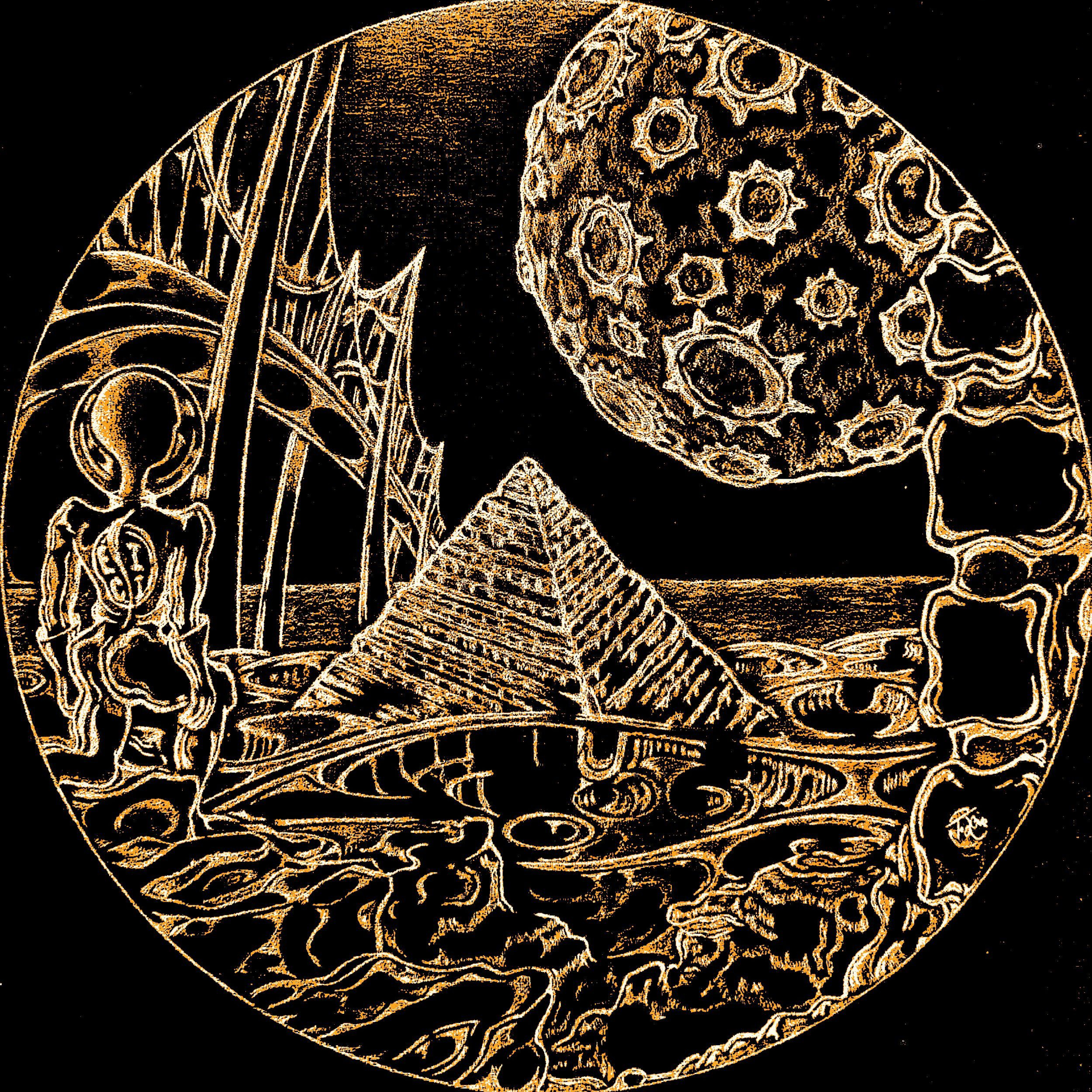
Space and TimeTerence Mckenna Discussing AyahuascaTerence McKenna, a prominent advocate of psychedelic exploration, discussed Ayahuasca as a powerful plant-based psychedelic brew used by indigenous communities in the Amazon rainforest. McKenna believed that Ayahuasca had the potential to provide transformative experiences, allowing individuals to delve into the depths of their consciousness and gain profound insights into themselves and the nature of reality. He described Ayahuasca as a "teacher plant" that could reveal hidden aspects of oneself and the universe, leading to personal growth and expanded states of consciousness. McKenna emphasized the importance of proper preparation, intention, and a supportive environment when working with Ayahuasca. He also...
2023-06-1444 min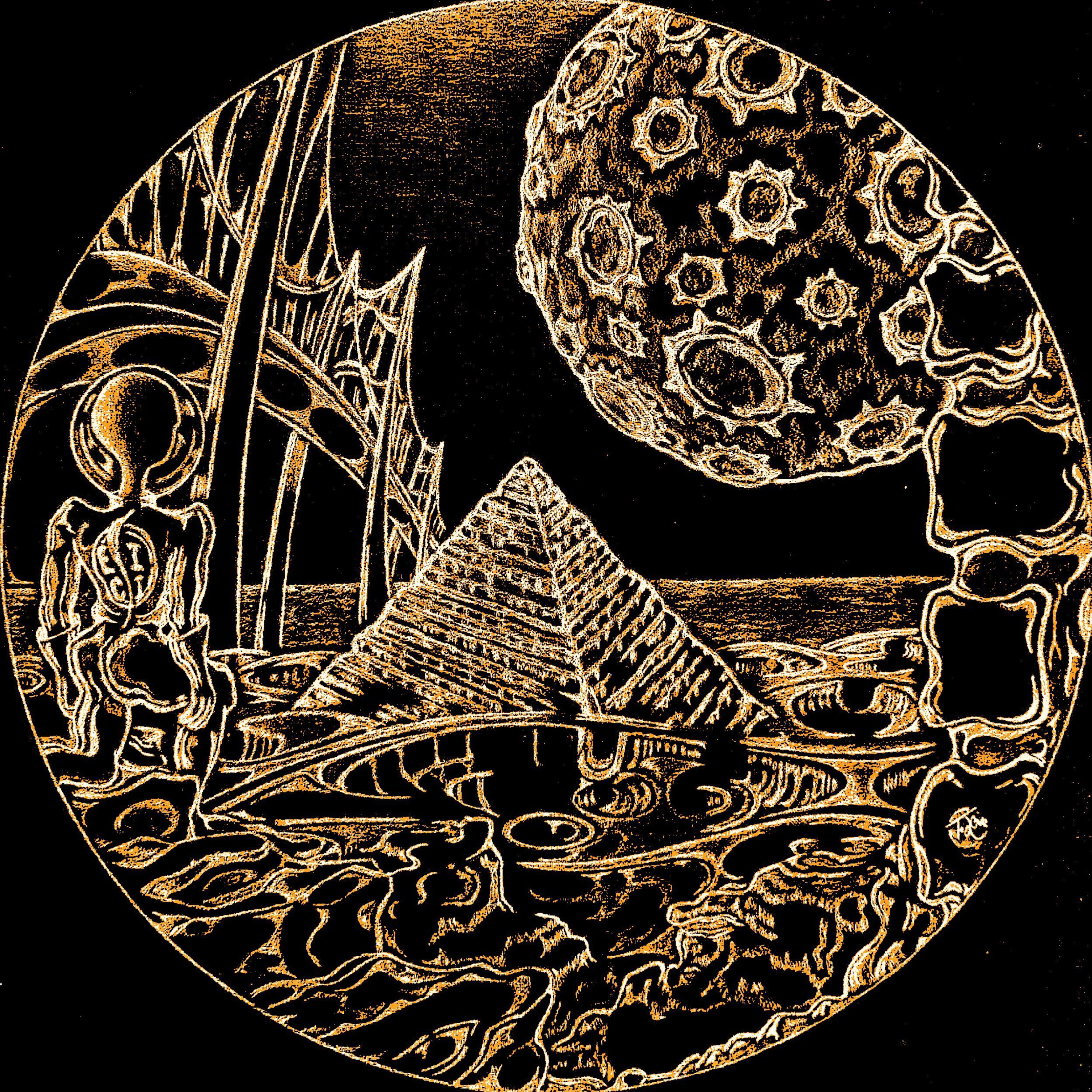
Space and TimeTerence Mckenna - Discussing "The World And Its Double"Terence McKenna was a prolific speaker and writer who explored various subjects, including consciousness, psychedelics, shamanism, and the nature of reality. He authored several books, such as "Food of the Gods," "True Hallucinations," and "The Archaic Revival," among others.
2023-06-132h 37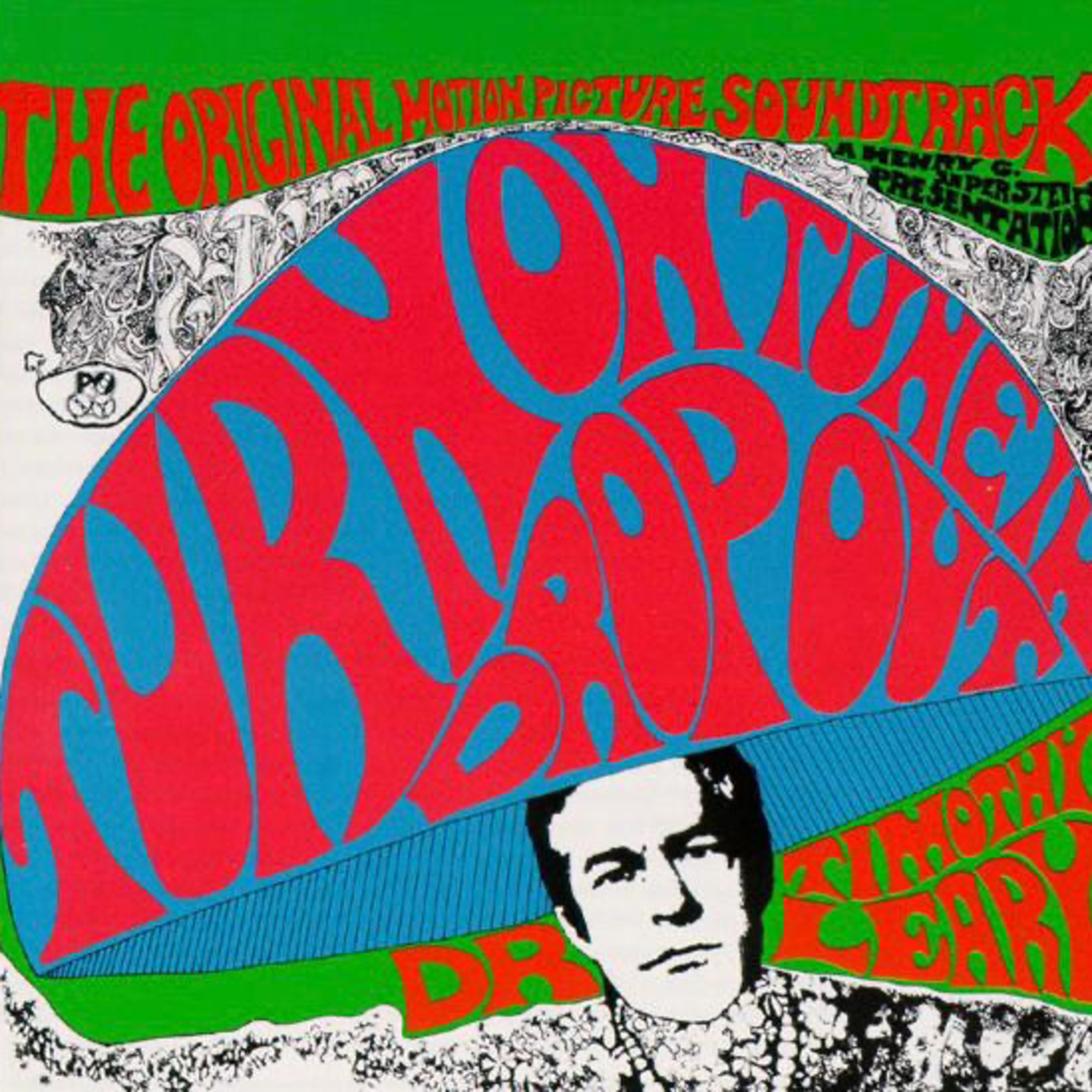
Space and TimeTimothy Leary - Part 10 - Turn On, Tune In, Drop Out"Turn On, Tune In, Drop Out" is a book written by Timothy Leary, a prominent figure in the counterculture movement of the 1960s. The book, published in 1966, encapsulates Leary's ideas and philosophy regarding the exploration of consciousness and the rejection of societal norms.
The title itself encapsulates Leary's main message. "Turn on" refers to the idea of expanding one's consciousness through various means, such as psychedelic substances like LSD. Leary believed that by altering our perception of reality, we could gain new insights and experiences.
"Tune in" emphasizes the importance of attuning oneself to the...
2023-06-1302 min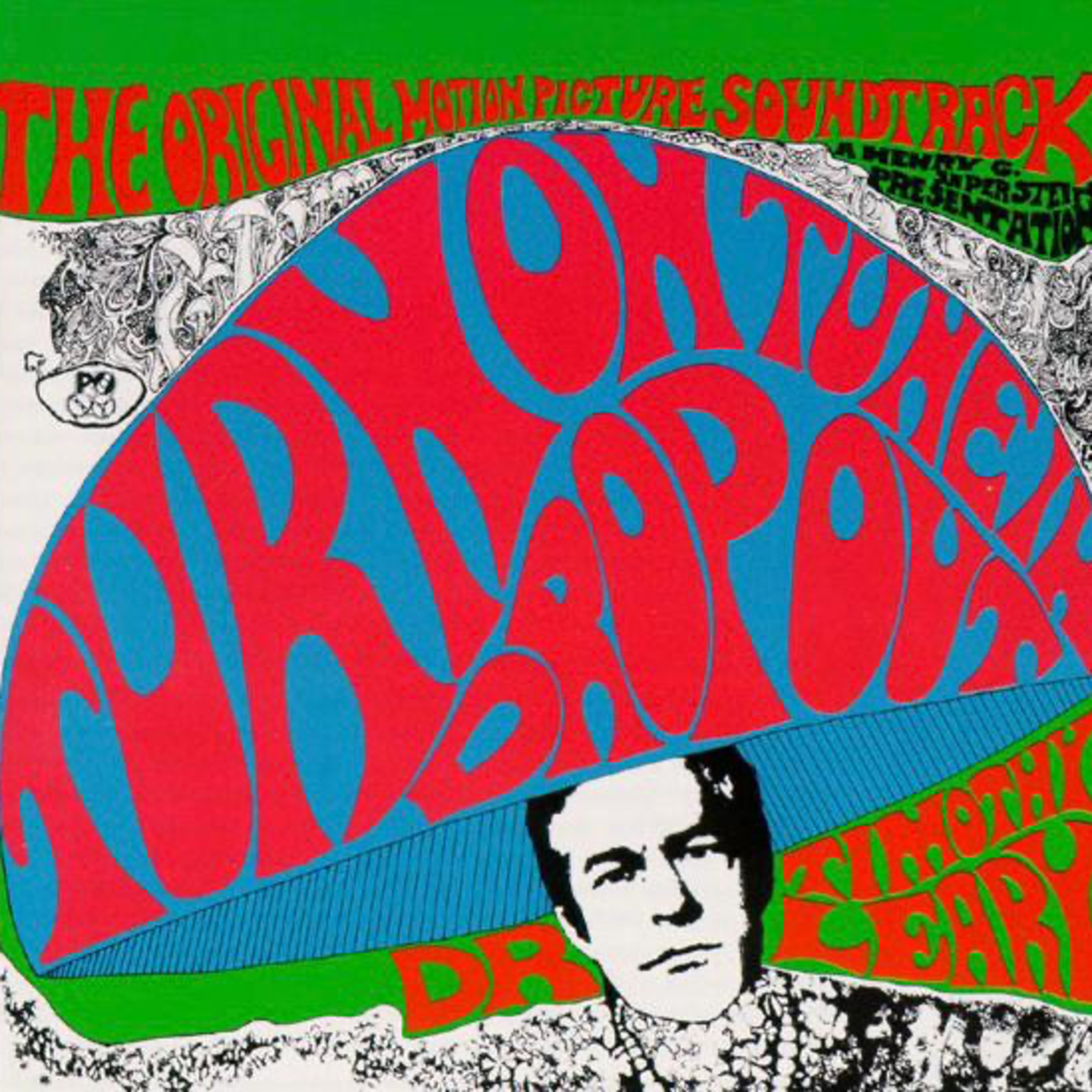
Space and TimeTimothy Leary - Part 9 - Turn On, Tune In, Drop Out"Turn On, Tune In, Drop Out" is a book written by Timothy Leary, a prominent figure in the counterculture movement of the 1960s. The book, published in 1966, encapsulates Leary's ideas and philosophy regarding the exploration of consciousness and the rejection of societal norms.
The title itself encapsulates Leary's main message. "Turn on" refers to the idea of expanding one's consciousness through various means, such as psychedelic substances like LSD. Leary believed that by altering our perception of reality, we could gain new insights and experiences.
"Tune in" emphasizes the importance of attuning oneself to the...
2023-06-1303 min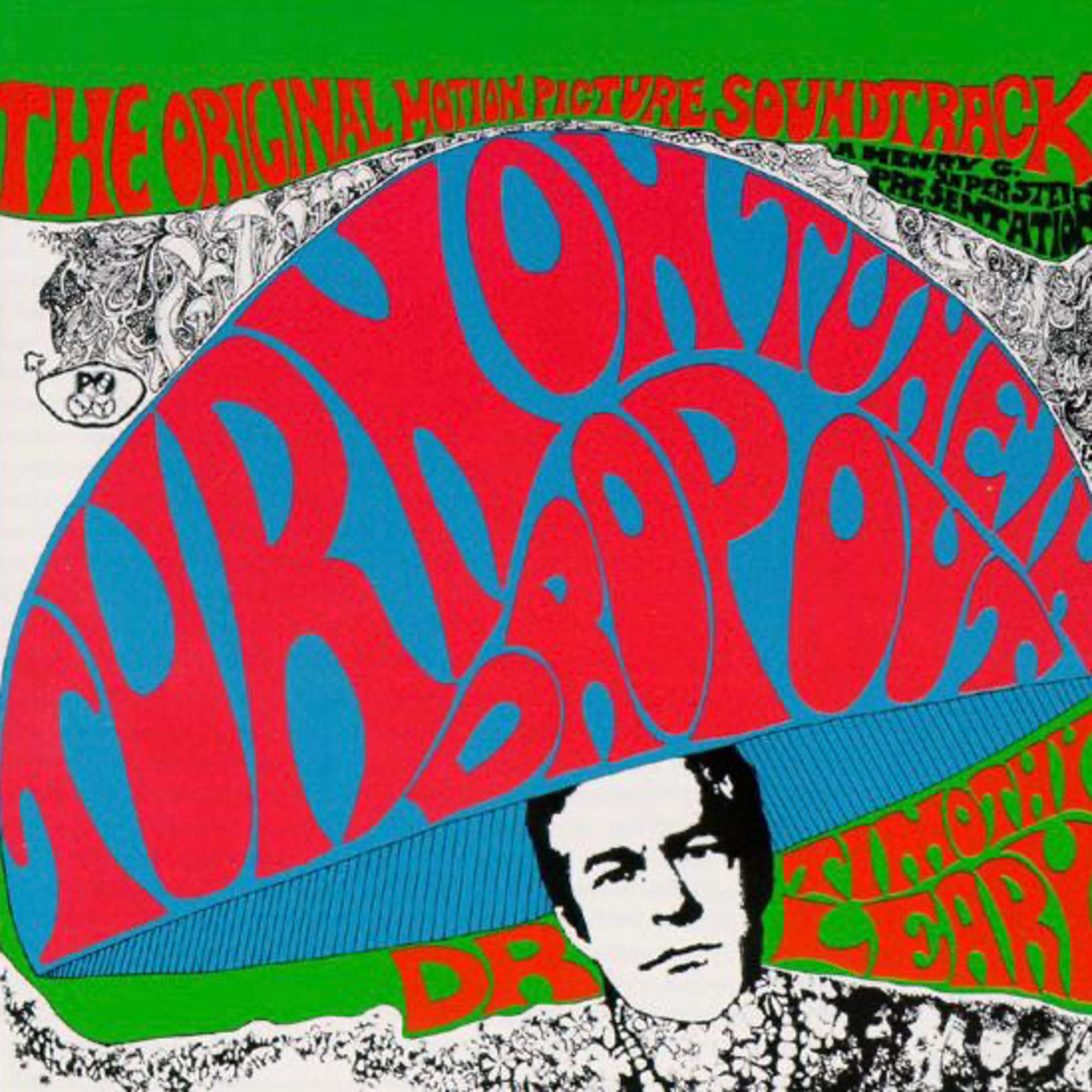
Space and TimeTimothy Leary - Part 8 - Turn On, Tune In, Drop Out"Turn On, Tune In, Drop Out" is a book written by Timothy Leary, a prominent figure in the counterculture movement of the 1960s. The book, published in 1966, encapsulates Leary's ideas and philosophy regarding the exploration of consciousness and the rejection of societal norms.
The title itself encapsulates Leary's main message. "Turn on" refers to the idea of expanding one's consciousness through various means, such as psychedelic substances like LSD. Leary believed that by altering our perception of reality, we could gain new insights and experiences.
"Tune in" emphasizes the importance of attuning oneself to the...
2023-06-1307 min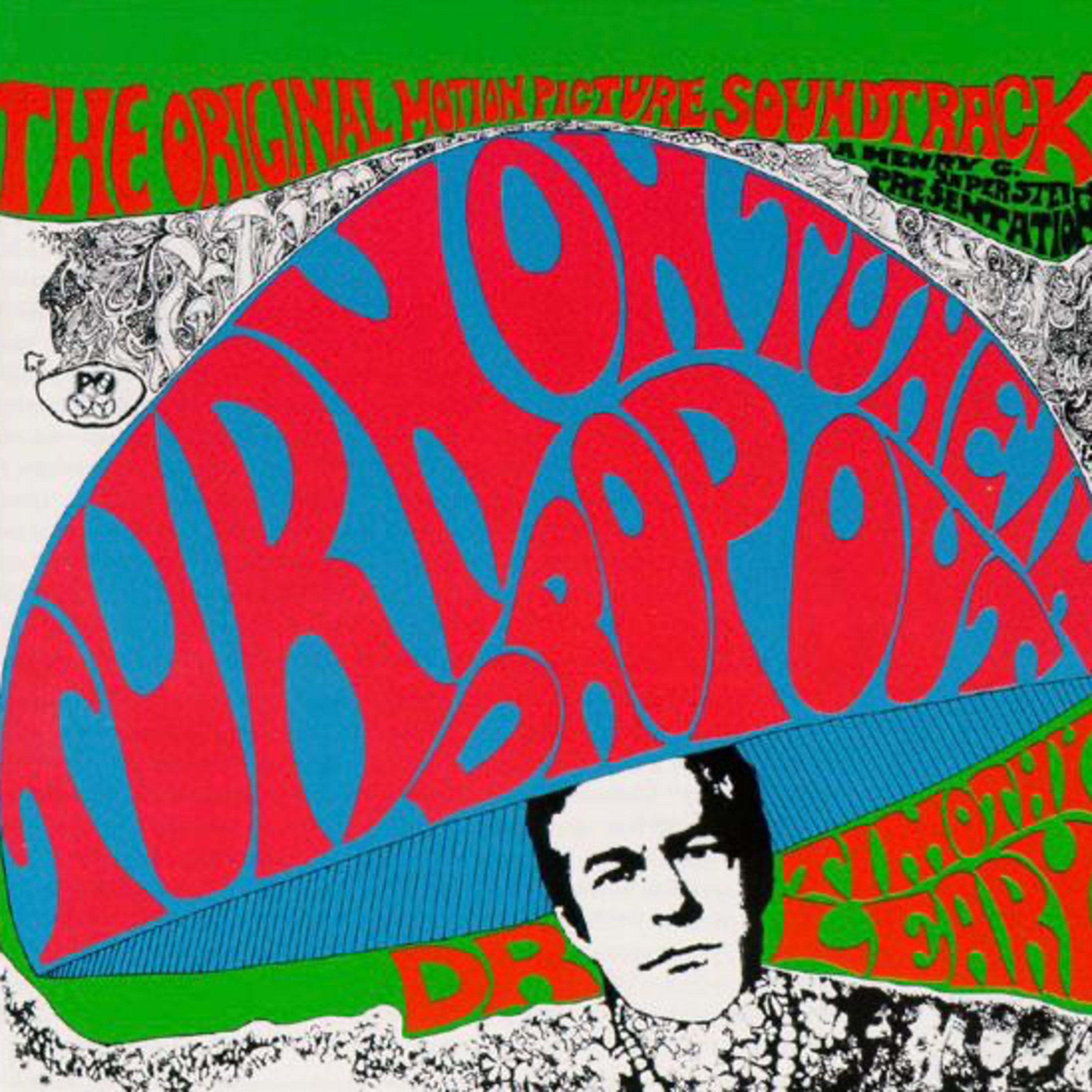
Space and TimeTimothy Leary - Part 7 - Turn On, Tune In, Drop Out"Turn On, Tune In, Drop Out" is a book written by Timothy Leary, a prominent figure in the counterculture movement of the 1960s. The book, published in 1966, encapsulates Leary's ideas and philosophy regarding the exploration of consciousness and the rejection of societal norms.
The title itself encapsulates Leary's main message. "Turn on" refers to the idea of expanding one's consciousness through various means, such as psychedelic substances like LSD. Leary believed that by altering our perception of reality, we could gain new insights and experiences.
"Tune in" emphasizes the importance of attuning oneself to the...
2023-06-1300 min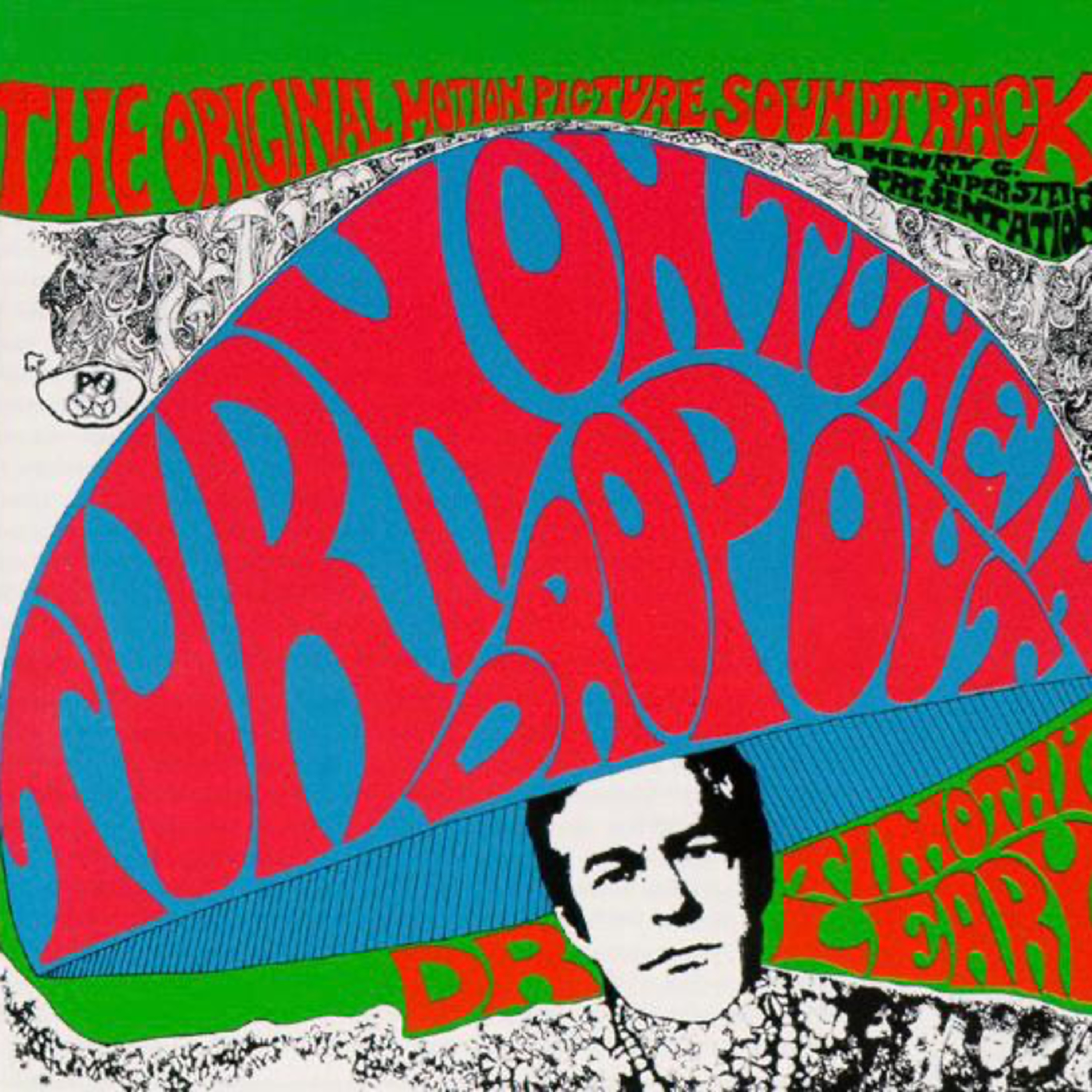
Space and TimeTimothy Leary - Part 6 - Turn On, Tune In, Drop Out"Turn On, Tune In, Drop Out" is a book written by Timothy Leary, a prominent figure in the counterculture movement of the 1960s. The book, published in 1966, encapsulates Leary's ideas and philosophy regarding the exploration of consciousness and the rejection of societal norms.
The title itself encapsulates Leary's main message. "Turn on" refers to the idea of expanding one's consciousness through various means, such as psychedelic substances like LSD. Leary believed that by altering our perception of reality, we could gain new insights and experiences.
"Tune in" emphasizes the importance of attuning oneself to the...
2023-06-1304 min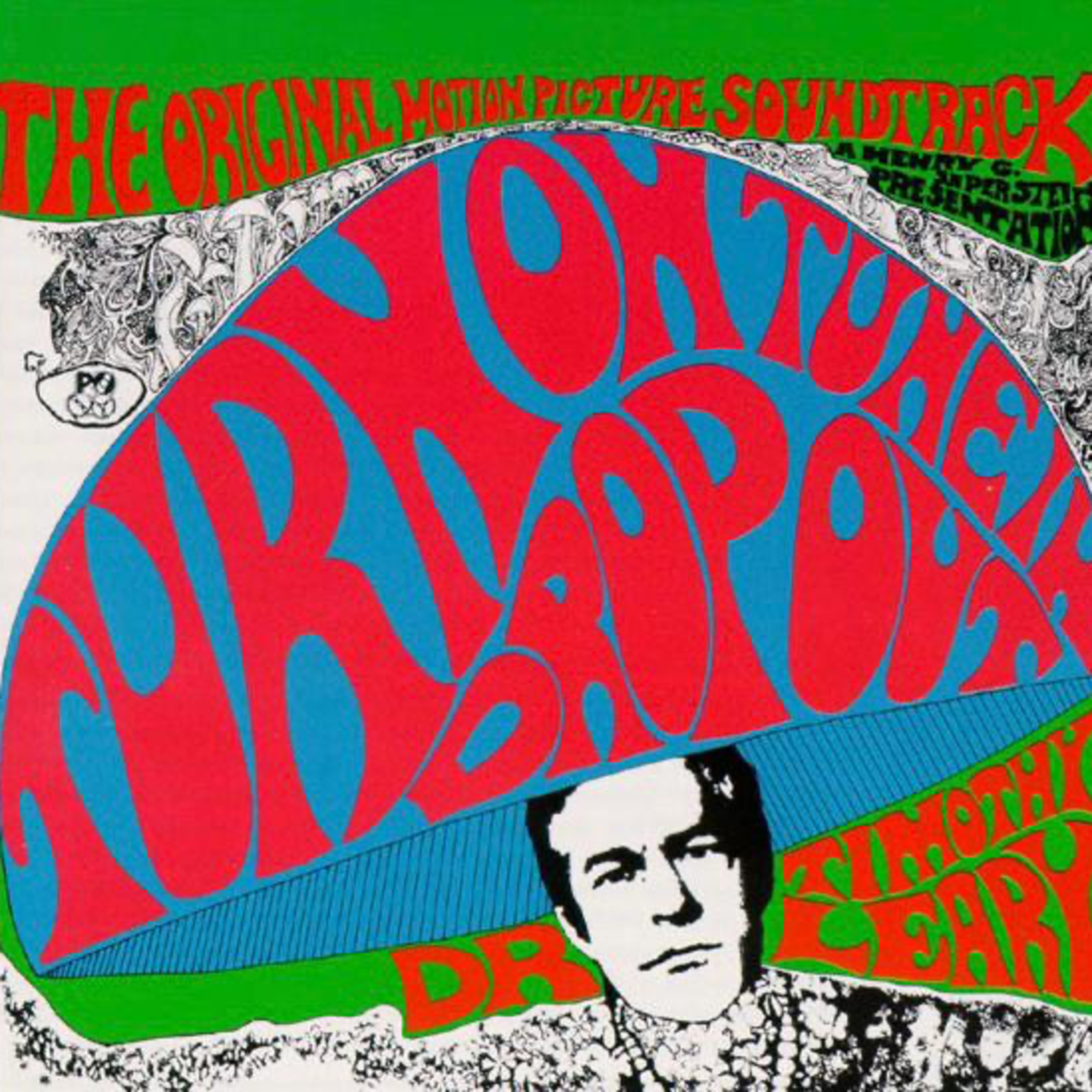
Space and TimeTimothy Leary - Part 5 - Turn On, Tune In, Drop Out"Turn On, Tune In, Drop Out" is a book written by Timothy Leary, a prominent figure in the counterculture movement of the 1960s. The book, published in 1966, encapsulates Leary's ideas and philosophy regarding the exploration of consciousness and the rejection of societal norms.
The title itself encapsulates Leary's main message. "Turn on" refers to the idea of expanding one's consciousness through various means, such as psychedelic substances like LSD. Leary believed that by altering our perception of reality, we could gain new insights and experiences.
"Tune in" emphasizes the importance of attuning oneself to the...
2023-06-1302 min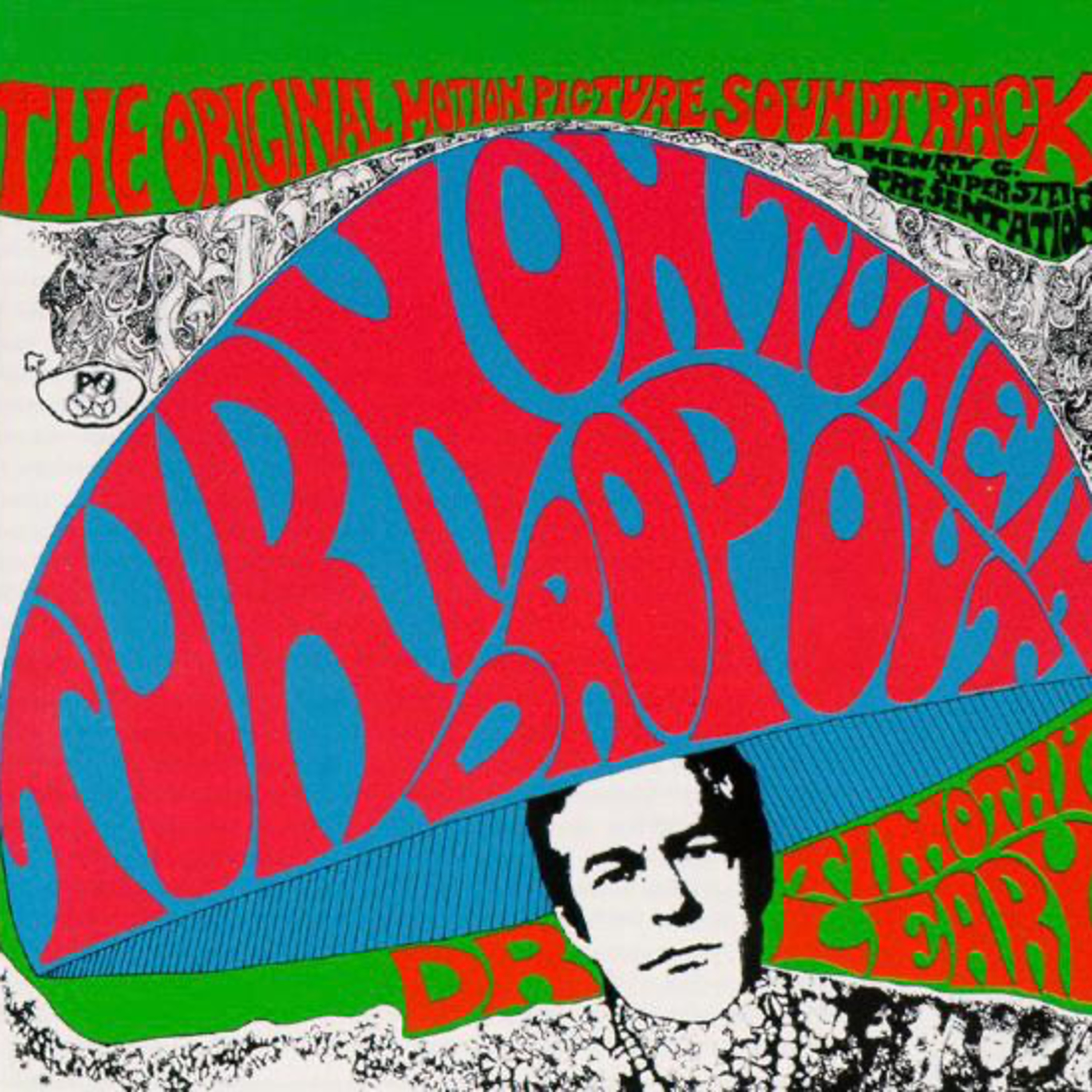
Space and TimeTimothy Leary - Part 4 - Turn On, Tune In, Drop Out"Turn On, Tune In, Drop Out" is a book written by Timothy Leary, a prominent figure in the counterculture movement of the 1960s. The book, published in 1966, encapsulates Leary's ideas and philosophy regarding the exploration of consciousness and the rejection of societal norms.
The title itself encapsulates Leary's main message. "Turn on" refers to the idea of expanding one's consciousness through various means, such as psychedelic substances like LSD. Leary believed that by altering our perception of reality, we could gain new insights and experiences.
"Tune in" emphasizes the importance of attuning oneself to the...
2023-06-1303 min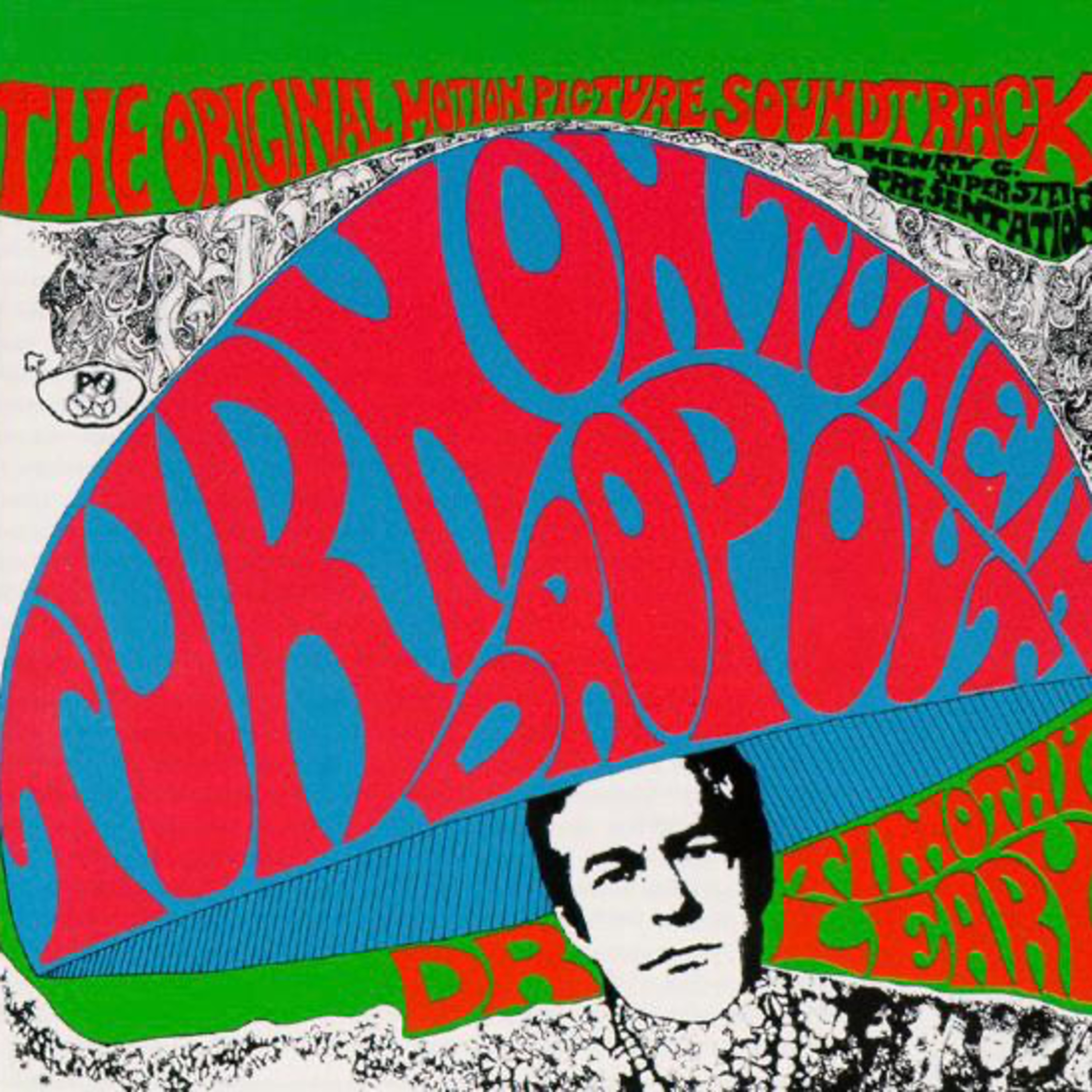
Space and TimeTimothy Leary - Part 3 - Turn On, Tune In, Drop Out"Turn On, Tune In, Drop Out" is a book written by Timothy Leary, a prominent figure in the counterculture movement of the 1960s. The book, published in 1966, encapsulates Leary's ideas and philosophy regarding the exploration of consciousness and the rejection of societal norms.
The title itself encapsulates Leary's main message. "Turn on" refers to the idea of expanding one's consciousness through various means, such as psychedelic substances like LSD. Leary believed that by altering our perception of reality, we could gain new insights and experiences.
"Tune in" emphasizes the importance of attuning oneself to the...
2023-06-1303 min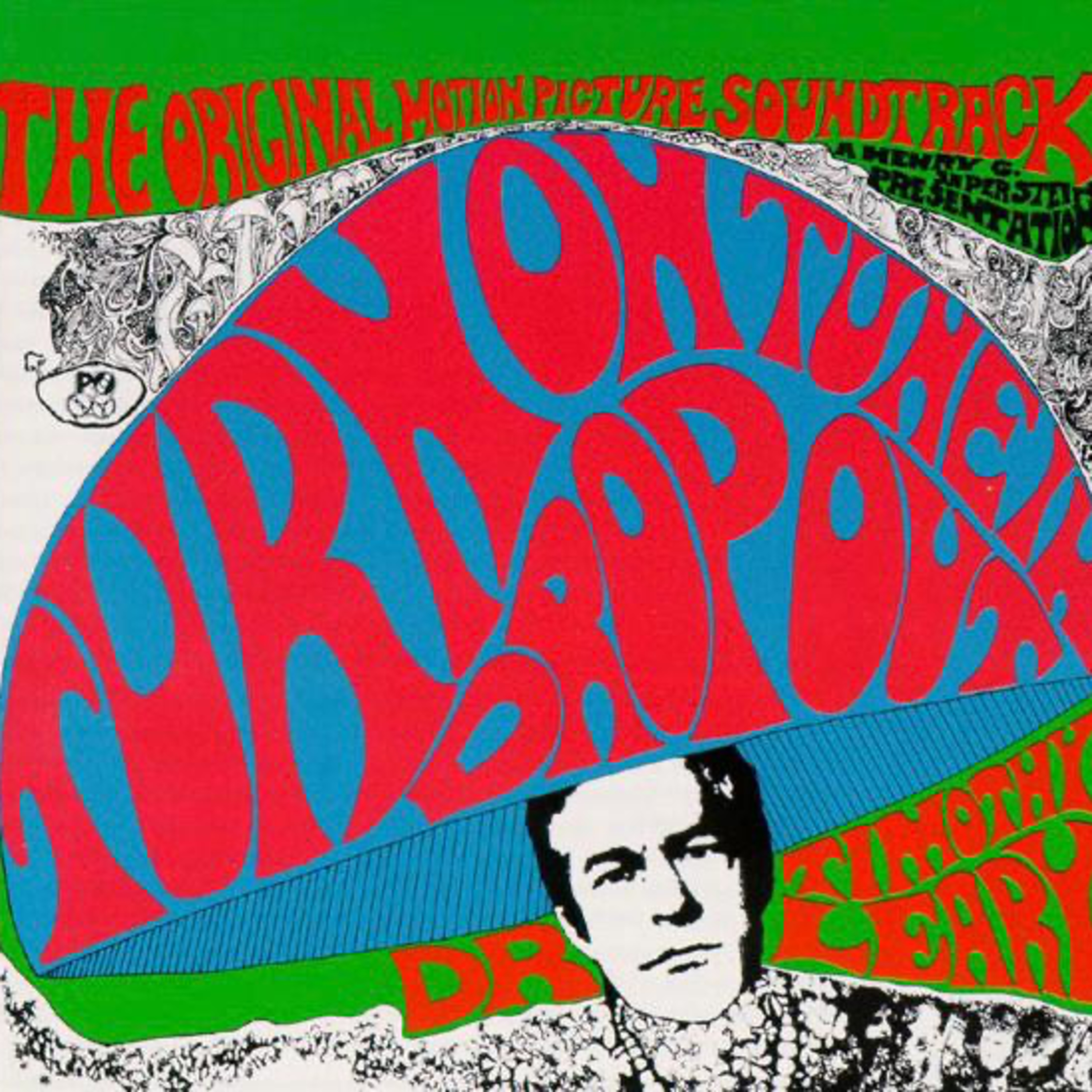
Space and TimeTimothy Leary - Part 2 - Turn On, Tune In, Drop Out"Turn On, Tune In, Drop Out" is a book written by Timothy Leary, a prominent figure in the counterculture movement of the 1960s. The book, published in 1966, encapsulates Leary's ideas and philosophy regarding the exploration of consciousness and the rejection of societal norms.
The title itself encapsulates Leary's main message. "Turn on" refers to the idea of expanding one's consciousness through various means, such as psychedelic substances like LSD. Leary believed that by altering our perception of reality, we could gain new insights and experiences.
"Tune in" emphasizes the importance of attuning oneself to the...
2023-06-1302 min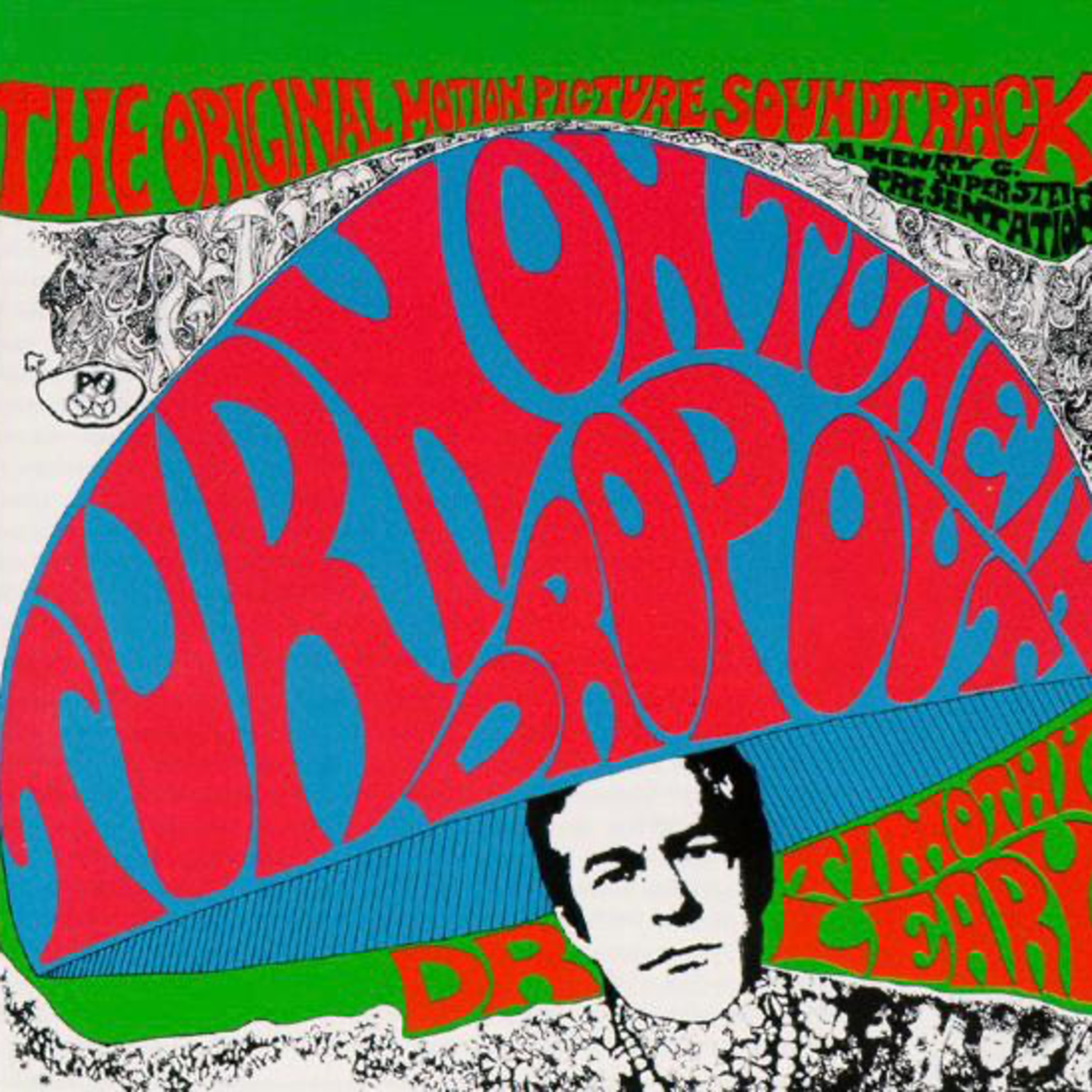
Space and TimeTimothy Leary - Part 1 - Turn On, Tune In, Drop Out"Turn On, Tune In, Drop Out" is a book written by Timothy Leary, a prominent figure in the counterculture movement of the 1960s. The book, published in 1966, encapsulates Leary's ideas and philosophy regarding the exploration of consciousness and the rejection of societal norms.
The title itself encapsulates Leary's main message. "Turn on" refers to the idea of expanding one's consciousness through various means, such as psychedelic substances like LSD. Leary believed that by altering our perception of reality, we could gain new insights and experiences.
"Tune in" emphasizes the importance of attuning oneself to the...
2023-06-1302 min
Space and TimeAlan Watts - Part 16 - Buddhism, Religion of No ReligionAlan Watts popularized Eastern philosophy, particularly Zen Buddhism, in the Western world. He introduced the concept of the "Religion of No Religion," which emphasizes direct experience and personal realization over adherence to rigid beliefs and dogmas. Watts believed that traditional religious institutions often lose sight of the spiritual essence due to rituals and doctrines. He saw Zen Buddhism as a way to transcend these limitations by focusing on mindfulness, meditation, and living in the present moment. Watts encouraged individuals to cultivate wonder and openness towards existence, finding religious experiences in everyday life. He saw different religious traditions as expressions...
2023-06-1301 min
Space and TimeAlan Watts - Part 15 - Buddhism, Religion of No ReligionAlan Watts popularized Eastern philosophy, particularly Zen Buddhism, in the Western world. He introduced the concept of the "Religion of No Religion," which emphasizes direct experience and personal realization over adherence to rigid beliefs and dogmas. Watts believed that traditional religious institutions often lose sight of the spiritual essence due to rituals and doctrines. He saw Zen Buddhism as a way to transcend these limitations by focusing on mindfulness, meditation, and living in the present moment. Watts encouraged individuals to cultivate wonder and openness towards existence, finding religious experiences in everyday life. He saw different religious traditions as expressions...
2023-06-1303 min
Space and TimeAlan Watts - Part 14 - Buddhism, Religion of No ReligionAlan Watts popularized Eastern philosophy, particularly Zen Buddhism, in the Western world. He introduced the concept of the "Religion of No Religion," which emphasizes direct experience and personal realization over adherence to rigid beliefs and dogmas. Watts believed that traditional religious institutions often lose sight of the spiritual essence due to rituals and doctrines. He saw Zen Buddhism as a way to transcend these limitations by focusing on mindfulness, meditation, and living in the present moment. Watts encouraged individuals to cultivate wonder and openness towards existence, finding religious experiences in everyday life. He saw different religious traditions as expressions...
2023-06-1303 min
Space and TimeAlan Watts - Part 13 - Buddhism, Religion of No ReligionAlan Watts popularized Eastern philosophy, particularly Zen Buddhism, in the Western world. He introduced the concept of the "Religion of No Religion," which emphasizes direct experience and personal realization over adherence to rigid beliefs and dogmas. Watts believed that traditional religious institutions often lose sight of the spiritual essence due to rituals and doctrines. He saw Zen Buddhism as a way to transcend these limitations by focusing on mindfulness, meditation, and living in the present moment. Watts encouraged individuals to cultivate wonder and openness towards existence, finding religious experiences in everyday life. He saw different religious traditions as expressions...
2023-06-1303 min
Space and TimeAlan Watts - Part 16 - Buddhism, Religion of No ReligionAlan Watts popularized Eastern philosophy, particularly Zen Buddhism, in the Western world. He introduced the concept of the "Religion of No Religion," which emphasizes direct experience and personal realization over adherence to rigid beliefs and dogmas. Watts believed that traditional religious institutions often lose sight of the spiritual essence due to rituals and doctrines. He saw Zen Buddhism as a way to transcend these limitations by focusing on mindfulness, meditation, and living in the present moment. Watts encouraged individuals to cultivate wonder and openness towards existence, finding religious experiences in everyday life. He saw different religious traditions as expressions...
2023-06-1201 min
Space and TimeAlan Watts - Part 15 - Buddhism, Religion of No ReligionAlan Watts popularized Eastern philosophy, particularly Zen Buddhism, in the Western world. He introduced the concept of the "Religion of No Religion," which emphasizes direct experience and personal realization over adherence to rigid beliefs and dogmas. Watts believed that traditional religious institutions often lose sight of the spiritual essence due to rituals and doctrines. He saw Zen Buddhism as a way to transcend these limitations by focusing on mindfulness, meditation, and living in the present moment. Watts encouraged individuals to cultivate wonder and openness towards existence, finding religious experiences in everyday life. He saw different religious traditions as expressions...
2023-06-1203 min
Space and TimeAlan Watts - Part 14 - Buddhism, Religion of No ReligionAlan Watts popularized Eastern philosophy, particularly Zen Buddhism, in the Western world. He introduced the concept of the "Religion of No Religion," which emphasizes direct experience and personal realization over adherence to rigid beliefs and dogmas. Watts believed that traditional religious institutions often lose sight of the spiritual essence due to rituals and doctrines. He saw Zen Buddhism as a way to transcend these limitations by focusing on mindfulness, meditation, and living in the present moment. Watts encouraged individuals to cultivate wonder and openness towards existence, finding religious experiences in everyday life. He saw different religious traditions as expressions...
2023-06-1203 min
Space and TimeAlan Watts - Part 13 - Buddhism, Religion of No ReligionAlan Watts popularized Eastern philosophy, particularly Zen Buddhism, in the Western world. He introduced the concept of the "Religion of No Religion," which emphasizes direct experience and personal realization over adherence to rigid beliefs and dogmas. Watts believed that traditional religious institutions often lose sight of the spiritual essence due to rituals and doctrines. He saw Zen Buddhism as a way to transcend these limitations by focusing on mindfulness, meditation, and living in the present moment. Watts encouraged individuals to cultivate wonder and openness towards existence, finding religious experiences in everyday life. He saw different religious traditions as expressions...
2023-06-1203 min
Space and TimeAlan Watts - Part 13 - Buddhism, Religion of No ReligionAlan Watts popularized Eastern philosophy, particularly Zen Buddhism, in the Western world. He introduced the concept of the "Religion of No Religion," which emphasizes direct experience and personal realization over adherence to rigid beliefs and dogmas. Watts believed that traditional religious institutions often lose sight of the spiritual essence due to rituals and doctrines. He saw Zen Buddhism as a way to transcend these limitations by focusing on mindfulness, meditation, and living in the present moment. Watts encouraged individuals to cultivate wonder and openness towards existence, finding religious experiences in everyday life. He saw different religious traditions as expressions...
2023-06-1203 min
Space and TimeAlan Watts - Part 12 - Buddhism, Religion of No ReligionAlan Watts popularized Eastern philosophy, particularly Zen Buddhism, in the Western world. He introduced the concept of the "Religion of No Religion," which emphasizes direct experience and personal realization over adherence to rigid beliefs and dogmas. Watts believed that traditional religious institutions often lose sight of the spiritual essence due to rituals and doctrines. He saw Zen Buddhism as a way to transcend these limitations by focusing on mindfulness, meditation, and living in the present moment. Watts encouraged individuals to cultivate wonder and openness towards existence, finding religious experiences in everyday life. He saw different religious traditions as expressions...
2023-06-1203 min
Space and TimeAlan Watts - Part 12 - Buddhism, Religion of No ReligionAlan Watts popularized Eastern philosophy, particularly Zen Buddhism, in the Western world. He introduced the concept of the "Religion of No Religion," which emphasizes direct experience and personal realization over adherence to rigid beliefs and dogmas. Watts believed that traditional religious institutions often lose sight of the spiritual essence due to rituals and doctrines. He saw Zen Buddhism as a way to transcend these limitations by focusing on mindfulness, meditation, and living in the present moment. Watts encouraged individuals to cultivate wonder and openness towards existence, finding religious experiences in everyday life. He saw different religious traditions as expressions...
2023-06-1203 min
Space and TimeAlan Watts - Part 12 - Buddhism, Religion of No ReligionAlan Watts popularized Eastern philosophy, particularly Zen Buddhism, in the Western world. He introduced the concept of the "Religion of No Religion," which emphasizes direct experience and personal realization over adherence to rigid beliefs and dogmas. Watts believed that traditional religious institutions often lose sight of the spiritual essence due to rituals and doctrines. He saw Zen Buddhism as a way to transcend these limitations by focusing on mindfulness, meditation, and living in the present moment. Watts encouraged individuals to cultivate wonder and openness towards existence, finding religious experiences in everyday life. He saw different religious traditions as expressions...
2023-06-1203 min
Space and TimeAlan Watts - Part 11 - Buddhism, Religion of No ReligionAlan Watts popularized Eastern philosophy, particularly Zen Buddhism, in the Western world. He introduced the concept of the "Religion of No Religion," which emphasizes direct experience and personal realization over adherence to rigid beliefs and dogmas. Watts believed that traditional religious institutions often lose sight of the spiritual essence due to rituals and doctrines. He saw Zen Buddhism as a way to transcend these limitations by focusing on mindfulness, meditation, and living in the present moment. Watts encouraged individuals to cultivate wonder and openness towards existence, finding religious experiences in everyday life. He saw different religious traditions as expressions...
2023-06-1203 min
Space and TimeAlan Watts - Part 10 - Buddhism, Religion of No ReligionAlan Watts popularized Eastern philosophy, particularly Zen Buddhism, in the Western world. He introduced the concept of the "Religion of No Religion," which emphasizes direct experience and personal realization over adherence to rigid beliefs and dogmas. Watts believed that traditional religious institutions often lose sight of the spiritual essence due to rituals and doctrines. He saw Zen Buddhism as a way to transcend these limitations by focusing on mindfulness, meditation, and living in the present moment. Watts encouraged individuals to cultivate wonder and openness towards existence, finding religious experiences in everyday life. He saw different religious traditions as expressions...
2023-06-1203 min
Space and TimeAlan Watts - Part 9 - Buddhism, Religion of No ReligionAlan Watts popularized Eastern philosophy, particularly Zen Buddhism, in the Western world. He introduced the concept of the "Religion of No Religion," which emphasizes direct experience and personal realization over adherence to rigid beliefs and dogmas. Watts believed that traditional religious institutions often lose sight of the spiritual essence due to rituals and doctrines. He saw Zen Buddhism as a way to transcend these limitations by focusing on mindfulness, meditation, and living in the present moment. Watts encouraged individuals to cultivate wonder and openness towards existence, finding religious experiences in everyday life. He saw different religious traditions as expressions...
2023-06-1203 min
Space and TimeAlan Watts - Part 8 - Buddhism, Religion of No ReligionAlan Watts popularized Eastern philosophy, particularly Zen Buddhism, in the Western world. He introduced the concept of the "Religion of No Religion," which emphasizes direct experience and personal realization over adherence to rigid beliefs and dogmas. Watts believed that traditional religious institutions often lose sight of the spiritual essence due to rituals and doctrines. He saw Zen Buddhism as a way to transcend these limitations by focusing on mindfulness, meditation, and living in the present moment. Watts encouraged individuals to cultivate wonder and openness towards existence, finding religious experiences in everyday life. He saw different religious traditions as expressions...
2023-06-1203 min
Space and TimeAlan Watts - Part 7 - Buddhism, Religion of No ReligionAlan Watts popularized Eastern philosophy, particularly Zen Buddhism, in the Western world. He introduced the concept of the "Religion of No Religion," which emphasizes direct experience and personal realization over adherence to rigid beliefs and dogmas. Watts believed that traditional religious institutions often lose sight of the spiritual essence due to rituals and doctrines. He saw Zen Buddhism as a way to transcend these limitations by focusing on mindfulness, meditation, and living in the present moment. Watts encouraged individuals to cultivate wonder and openness towards existence, finding religious experiences in everyday life. He saw different religious traditions as expressions...
2023-06-1203 min
Space and TimeAlan Watts - Part 6 - Buddhism, Religion of No ReligionAlan Watts popularized Eastern philosophy, particularly Zen Buddhism, in the Western world. He introduced the concept of the "Religion of No Religion," which emphasizes direct experience and personal realization over adherence to rigid beliefs and dogmas. Watts believed that traditional religious institutions often lose sight of the spiritual essence due to rituals and doctrines. He saw Zen Buddhism as a way to transcend these limitations by focusing on mindfulness, meditation, and living in the present moment. Watts encouraged individuals to cultivate wonder and openness towards existence, finding religious experiences in everyday life. He saw different religious traditions as expressions...
2023-06-1203 min
Space and TimeAlan Watts - Part 5 - Buddhism, Religion of No ReligionAlan Watts popularized Eastern philosophy, particularly Zen Buddhism, in the Western world. He introduced the concept of the "Religion of No Religion," which emphasizes direct experience and personal realization over adherence to rigid beliefs and dogmas. Watts believed that traditional religious institutions often lose sight of the spiritual essence due to rituals and doctrines. He saw Zen Buddhism as a way to transcend these limitations by focusing on mindfulness, meditation, and living in the present moment. Watts encouraged individuals to cultivate wonder and openness towards existence, finding religious experiences in everyday life. He saw different religious traditions as expressions...
2023-06-1203 min
Space and TimeAlan Watts - Part 4 - Buddhism, Religion of No ReligionAlan Watts popularized Eastern philosophy, particularly Zen Buddhism, in the Western world. He introduced the concept of the "Religion of No Religion," which emphasizes direct experience and personal realization over adherence to rigid beliefs and dogmas. Watts believed that traditional religious institutions often lose sight of the spiritual essence due to rituals and doctrines. He saw Zen Buddhism as a way to transcend these limitations by focusing on mindfulness, meditation, and living in the present moment. Watts encouraged individuals to cultivate wonder and openness towards existence, finding religious experiences in everyday life. He saw different religious traditions as expressions...
2023-06-1203 min
Space and TimeAlan Watts - Part 3 - Buddhism, Religion of No ReligionAlan Watts popularized Eastern philosophy, particularly Zen Buddhism, in the Western world. He introduced the concept of the "Religion of No Religion," which emphasizes direct experience and personal realization over adherence to rigid beliefs and dogmas. Watts believed that traditional religious institutions often lose sight of the spiritual essence due to rituals and doctrines. He saw Zen Buddhism as a way to transcend these limitations by focusing on mindfulness, meditation, and living in the present moment. Watts encouraged individuals to cultivate wonder and openness towards existence, finding religious experiences in everyday life. He saw different religious traditions as expressions...
2023-06-1203 min
Space and TimeAlan Watts - Part 2 - Buddhism, Religion of No ReligionAlan Watts popularized Eastern philosophy, particularly Zen Buddhism, in the Western world. He introduced the concept of the "Religion of No Religion," which emphasizes direct experience and personal realization over adherence to rigid beliefs and dogmas. Watts believed that traditional religious institutions often lose sight of the spiritual essence due to rituals and doctrines. He saw Zen Buddhism as a way to transcend these limitations by focusing on mindfulness, meditation, and living in the present moment. Watts encouraged individuals to cultivate wonder and openness towards existence, finding religious experiences in everyday life. He saw different religious traditions as expressions...
2023-06-1203 min
Space and TimeAlan watts - Part 1 - Buddhism, Religion of No ReligionAlan Watts popularized Eastern philosophy, particularly Zen Buddhism, in the Western world. He introduced the concept of the "Religion of No Religion," which emphasizes direct experience and personal realization over adherence to rigid beliefs and dogmas. Watts believed that traditional religious institutions often lose sight of the spiritual essence due to rituals and doctrines. He saw Zen Buddhism as a way to transcend these limitations by focusing on mindfulness, meditation, and living in the present moment. Watts encouraged individuals to cultivate wonder and openness towards existence, finding religious experiences in everyday life. He saw different religious traditions as expressions...
2023-06-1203 min
Space and TimeAlan Watts - Zen & The Limits Of Explanation.Alan Watts explored the teachings of Zen Buddhism, a school of Mahayana Buddhism that emphasizes direct experience, intuition, and the attainment of enlightenment. Zen places great importance on meditation and the direct realization of truth beyond conceptual thinking.
In his various writings and lectures, Watts delved into the paradoxical nature of Zen and the challenges of trying to articulate its essence through language. He recognized that the analytical and conceptual mind often falls short in capturing the depth and subtleties of Zen teachings, which aim to transcend dualistic thinking and conventional understanding.
Watts emphasized the...
2023-06-0749 min
Space and TimeAlan Watts - CoincidenceIn his teachings, Alan Watts suggested that events that may appear as coincidences or random occurrences are, in fact, part of a larger pattern or web of existence. He emphasized the idea that there is a fundamental unity underlying the apparent diversity and chaos of life. According to Watts, coincidences are meaningful synchronicities that can reveal deeper truths and connections in our lives.
Watts encouraged individuals to approach coincidences with an open mind, recognizing them as opportunities for insight and self-discovery. He believed that by embracing the interconnected nature of reality and paying attention to the synchronicities...
2023-06-0724 min
Space and TimeAlan Watts - Part 2 - Wisdom of the Mountains.Alan Watts (1915-1973) was a British-American philosopher, writer, and speaker known for his popularization of Eastern philosophy and spirituality in the Western world. His book "Wisdom of the Mountains" is a fictional work that combines elements of philosophy, spirituality, and storytelling.
In "Wisdom of the Mountains," Watts explores the timeless wisdom found in the natural world, particularly in the mountains. He uses mountains as a metaphor for the pursuit of enlightenment, drawing parallels between the physical challenges and mental obstacles one encounters in mountain climbing and the inner journey towards self-realization.
Through captivating narratives and...
2023-06-0726 min
Space and TimeAlan Watts - Part 1 - Wisdom of the Mountains.Alan Watts (1915-1973) was a British-American philosopher, writer, and speaker known for his popularization of Eastern philosophy and spirituality in the Western world. His book "Wisdom of the Mountains" is a fictional work that combines elements of philosophy, spirituality, and storytelling.
In "Wisdom of the Mountains," Watts explores the timeless wisdom found in the natural world, particularly in the mountains. He uses mountains as a metaphor for the pursuit of enlightenment, drawing parallels between the physical challenges and mental obstacles one encounters in mountain climbing and the inner journey towards self-realization.
Through captivating narratives and...
2023-06-0727 min
Space and TimeTheodore (Ted) Kaczynski - Industrial Society And Its Future a.k.a. The Unabomber Manifesto.Ted Kaczynski, also known as the Unabomber, is an infamous figure in American history due to his acts of domestic terrorism. Between 1978 and 1995, Kaczynski sent numerous mail bombs that resulted in the deaths of three people and injured many others. However, what made Kaczynski even more enigmatic was his manifesto, titled "Industrial Society and Its Future," or commonly referred to as the "Unabomber Manifesto."
Published in 1995, Kaczynski's manifesto spanned 35,000 words and presented a scathing critique of modern industrial society and its consequences. In his writing, he argued that technological advancements and the pursuit of industrial progress had...
2023-06-023h 14
Space and TimeAlan Watts - Part 11 - Who is it who knows there is no egoAlan Watts was a British philosopher, writer, and speaker known for popularizing Eastern philosophy and spirituality in the Western world. He was particularly influential in introducing Zen Buddhism, Taoism, and Vedanta to a wider audience through his lectures, books, and radio broadcasts.
Regarding the question of "Who is it that knows no ego?" Alan Watts often discussed the nature of the ego and its dissolution in his teachings. According to Watts, the ego or the "self" is a construct that arises from our identification with our thoughts, emotions, and body. He emphasized that this sense of...
2023-05-2701 min
Space and TimeAlan Watts - Part 10 - Who is it who knows there is no egoAlan Watts was a British philosopher, writer, and speaker known for popularizing Eastern philosophy and spirituality in the Western world. He was particularly influential in introducing Zen Buddhism, Taoism, and Vedanta to a wider audience through his lectures, books, and radio broadcasts.
Regarding the question of "Who is it that knows no ego?" Alan Watts often discussed the nature of the ego and its dissolution in his teachings. According to Watts, the ego or the "self" is a construct that arises from our identification with our thoughts, emotions, and body. He emphasized that this sense of...
2023-05-2705 min
Space and TimeAlan Watts - Part 9 - Who is it who knows there is no egoAlan Watts was a British philosopher, writer, and speaker known for popularizing Eastern philosophy and spirituality in the Western world. He was particularly influential in introducing Zen Buddhism, Taoism, and Vedanta to a wider audience through his lectures, books, and radio broadcasts.
Regarding the question of "Who is it that knows no ego?" Alan Watts often discussed the nature of the ego and its dissolution in his teachings. According to Watts, the ego or the "self" is a construct that arises from our identification with our thoughts, emotions, and body. He emphasized that this sense of...
2023-05-2704 min
Space and TimeAlan Watts - Part 8 - Who is it who knows there is no egoAlan Watts was a British philosopher, writer, and speaker known for popularizing Eastern philosophy and spirituality in the Western world. He was particularly influential in introducing Zen Buddhism, Taoism, and Vedanta to a wider audience through his lectures, books, and radio broadcasts.
Regarding the question of "Who is it that knows no ego?" Alan Watts often discussed the nature of the ego and its dissolution in his teachings. According to Watts, the ego or the "self" is a construct that arises from our identification with our thoughts, emotions, and body. He emphasized that this sense of...
2023-05-2704 min
Space and TimeAlan Watts - Part 7 - Who is it who knows there is no egoAlan Watts was a British philosopher, writer, and speaker known for popularizing Eastern philosophy and spirituality in the Western world. He was particularly influential in introducing Zen Buddhism, Taoism, and Vedanta to a wider audience through his lectures, books, and radio broadcasts.
Regarding the question of "Who is it that knows no ego?" Alan Watts often discussed the nature of the ego and its dissolution in his teachings. According to Watts, the ego or the "self" is a construct that arises from our identification with our thoughts, emotions, and body. He emphasized that this sense of...
2023-05-2705 min
Space and TimeAlan Watts - Part 6 - Who is it who knows there is no egoAlan Watts was a British philosopher, writer, and speaker known for popularizing Eastern philosophy and spirituality in the Western world. He was particularly influential in introducing Zen Buddhism, Taoism, and Vedanta to a wider audience through his lectures, books, and radio broadcasts.
Regarding the question of "Who is it that knows no ego?" Alan Watts often discussed the nature of the ego and its dissolution in his teachings. According to Watts, the ego or the "self" is a construct that arises from our identification with our thoughts, emotions, and body. He emphasized that this sense of...
2023-05-2704 min
Space and TimeAlan Watts - Part 5 - Who is it who knows there is no egoAlan Watts was a British philosopher, writer, and speaker known for popularizing Eastern philosophy and spirituality in the Western world. He was particularly influential in introducing Zen Buddhism, Taoism, and Vedanta to a wider audience through his lectures, books, and radio broadcasts.
Regarding the question of "Who is it that knows no ego?" Alan Watts often discussed the nature of the ego and its dissolution in his teachings. According to Watts, the ego or the "self" is a construct that arises from our identification with our thoughts, emotions, and body. He emphasized that this sense of...
2023-05-2704 min
Space and TimeAlan Watts - Part 4 - Who is it who knows there is no egoAlan Watts was a British philosopher, writer, and speaker known for popularizing Eastern philosophy and spirituality in the Western world. He was particularly influential in introducing Zen Buddhism, Taoism, and Vedanta to a wider audience through his lectures, books, and radio broadcasts.
Regarding the question of "Who is it that knows no ego?" Alan Watts often discussed the nature of the ego and its dissolution in his teachings. According to Watts, the ego or the "self" is a construct that arises from our identification with our thoughts, emotions, and body. He emphasized that this sense of...
2023-05-2705 min
Space and TimeAlan Watts - Part 3 - Who is it who knows there is no egoAlan Watts was a British philosopher, writer, and speaker known for popularizing Eastern philosophy and spirituality in the Western world. He was particularly influential in introducing Zen Buddhism, Taoism, and Vedanta to a wider audience through his lectures, books, and radio broadcasts.
Regarding the question of "Who is it that knows no ego?" Alan Watts often discussed the nature of the ego and its dissolution in his teachings. According to Watts, the ego or the "self" is a construct that arises from our identification with our thoughts, emotions, and body. He emphasized that this sense of...
2023-05-2704 min
Space and TimeAlan Watts - Part 2 - Who is it who knows there is no egoAlan Watts was a British philosopher, writer, and speaker known for popularizing Eastern philosophy and spirituality in the Western world. He was particularly influential in introducing Zen Buddhism, Taoism, and Vedanta to a wider audience through his lectures, books, and radio broadcasts.
Regarding the question of "Who is it that knows no ego?" Alan Watts often discussed the nature of the ego and its dissolution in his teachings. According to Watts, the ego or the "self" is a construct that arises from our identification with our thoughts, emotions, and body. He emphasized that this sense of...
2023-05-2704 min
Space and TimeAlan Watts - Part 1 - Who is it who knows there is no egoAlan Watts was a British philosopher, writer, and speaker known for popularizing Eastern philosophy and spirituality in the Western world. He was particularly influential in introducing Zen Buddhism, Taoism, and Vedanta to a wider audience through his lectures, books, and radio broadcasts.
Regarding the question of "Who is it that knows no ego?" Alan Watts often discussed the nature of the ego and its dissolution in his teachings. According to Watts, the ego or the "self" is a construct that arises from our identification with our thoughts, emotions, and body. He emphasized that this sense of...
2023-05-2705 min
Space and TimeWalter Russell - The Man Who Tapped the Secrets of the Universe Part 3Walter Russell (1871-1963) was an American polymath, artist, author, and philosopher. He made significant contributions in various fields, including art, sculpture, music, natural philosophy, and cosmology. Although his ideas are not widely accepted in mainstream scientific circles, he developed a unique and comprehensive theory known as the "Russell Cosmogony" or "Universal One."
Russell's philosophy and cosmology were influenced by his experiences and observations throughout his life. He claimed to have had numerous mystical experiences and moments of illumination that provided him with profound insights into the nature of the universe.
According to Russell, the universe...
2023-05-231h 26
Space and TimeWalter Russell - The Man Who Tapped the Secrets of the Universe Part 2Walter Russell (1871-1963) was an American polymath, artist, author, and philosopher. He made significant contributions in various fields, including art, sculpture, music, natural philosophy, and cosmology. Although his ideas are not widely accepted in mainstream scientific circles, he developed a unique and comprehensive theory known as the "Russell Cosmogony" or "Universal One."
Russell's philosophy and cosmology were influenced by his experiences and observations throughout his life. He claimed to have had numerous mystical experiences and moments of illumination that provided him with profound insights into the nature of the universe.
According to Russell, the universe...
2023-05-231h 15
Space and TimeWalter Russell -- The Man Who Tapped the Secrets of the Universe Part 1Walter Russell (1871-1963) was an American polymath, artist, author, and philosopher. He made significant contributions in various fields, including art, sculpture, music, natural philosophy, and cosmology. Although his ideas are not widely accepted in mainstream scientific circles, he developed a unique and comprehensive theory known as the "Russell Cosmogony" or "Universal One."
Russell's philosophy and cosmology were influenced by his experiences and observations throughout his life. He claimed to have had numerous mystical experiences and moments of illumination that provided him with profound insights into the nature of the universe.
According to Russell, the universe...
2023-05-231h 18
Space and TimeTerence McKenna, on the topic of Timewave Zero; from May 2nd, 1997.Art Bell's first interview with Terence McKenna, on the topic of Timewave Zero; from May 2nd, 1997.
2023-04-183h 00
Space and TimePsychedelia: Terence McKenna on NPR (KQED radio), March 1999Psychedelia: Terence McKenna on NPR (KQED radio), March 1999
Terence McKenna interviewed on NPR (KQED radio) by Michael Krasny in San Francisco, March 1999. This is one of the final interviews of Terence as his brain tumor was detected only a few weeks later. In the interview Terence talks about many subjects but one of interest was his recent experience with Bruce Damer exploring and building "avatar" virtual worlds.
2023-04-1854 min
Space and TimeAlan Watts - Part 7 The Tao of Philosophy - Limits of LanguageAlan Watts - Part 7 The Tao of Philosophy - Limits of Language
"The Tao of Philosophy: The Limits of Language" is a book written by Alan Watts that explores the limitations of language in our understanding of reality. The book argues that language is not a perfect tool for describing the world around us, and that it can sometimes lead us to misunderstandings and false assumptions.
Watts suggests that language is a symbolic system that we use to represent reality, but that it is not reality itself. He argues that our perceptions and experiences of the world cannot be fully...
2023-04-1326 min
Space and TimeAlan Watts - Part 6 The Tao of Philosophy - Man in NatureAlan Watts - Part 6 The Tao of Philosophy - Man in Nature
"The Tao of Philosophy: Man in Nature" is a book written by Alan Watts that explores the relationship between human beings and the natural world. The book argues that human beings are not separate from nature, but rather an integral part of it.
Watts suggests that modern Western civilization has lost touch with this connection, leading to a sense of alienation and disconnection from the natural world. He draws on the philosophy of Taoism to argue that humans should strive to live in harmony with nature rather than...
2023-04-1355 min
Space and TimeAlan Watts - Part 5 The Tao of Philosophy - Myth of MyselfAlan Watts - Part 5 The Tao of Philosophy - Myth of Myself
"The Tao of Philosophy: The Myth of Myself" is a book written by Alan Watts that explores the concept of the self and its relation to the universe. The book argues that the self is not a fixed entity but rather a constantly changing process that is intimately connected to the world around it.
Watts suggests that the way we see ourselves as separate from the universe is a mere illusion, and that in reality, we are all interconnected and interdependent. He discusses the Eastern philosophy of Taoism...
2023-04-1344 min
Space and TimeAlan Watts - Part 4 The Tao of Philosophy - Seeing Through the NetAlan Watts - Part 4 The Tao of Philosophy - Seeing Through the Net
"The Tao of Philosophy: Seeing Through the Net" is a book written by Alan Watts that explores the nature of reality and consciousness from a Taoist perspective. Watts argues that our usual way of understanding the world is through a "net" of concepts and categories that we use to categorize and make sense of our experiences. However, this net can also be limiting, as it prevents us from seeing the world as it truly is.
Watts suggests that we...
2023-04-1149 min
Space and TimeAlan Watts - Part 3 The Tao of Philosophy - Coincidence of OppositesAlan Watts - Part 3 The Tao of Philosophy - Coincidence of Opposites
One of the concepts Watts discusses in the book is the "coincidence of opposites," which refers to the idea that seemingly contradictory or opposing things can actually be complementary and interconnected.
According to Taoism, everything in the world is connected and interdependent, and opposites are simply different aspects of the same thing. For example, light and dark, hot and cold, and yin and yang are all opposite concepts that are interconnected and complementary. Understanding the coincidence of opposites can help us see beyond...
2023-04-1144 min
Space and TimeAlan Watts -Part 2 The Tao of Philosophy - Images of GodAlan Watts -Part 2 The Tao of Philosophy - Images of God
In this chapter, Watts discusses the various ways that different cultures and religions have conceptualized and represented the idea of God. He explores how these images of God can be both inspiring and limiting, and how they can shape our understanding of the world and ourselves. Watts also discusses the relationship between religion and philosophy, and how Taoism offers a unique perspective on the nature of the divine. Overall, this chapter provides insights into how different cultural and religious perspectives have shaped our...
2023-04-1126 min
Space and TimeAlan Watts -Part 1 The Tao of Philosophy - Slices of WisdomAlan Watts -Part 1 The Tao of Philosophy - Slices of Wisdom
"The Tao of Philosophy" is a book by Alan Watts that explores the fundamental principles of Taoism and how they relate to Western philosophy. Watts discusses the concept of the Tao, the nature of reality, and the importance of living in harmony with nature. He also examines the limitations of language and the role of meditation and intuition in understanding the world around us.
2023-04-1125 min
Space and TimeAlan Watts - Man, Nature and the Nature of Man Part 2Alan Watts continued - Man, Nature and the Nature of Man Part 2
Alan Watts was a British philosopher, writer, and speaker known for his interpretation of Eastern philosophy and religion for Western audiences. In his lectures and writings, he often explored the relationship between human beings, nature, and the universe.
In "Man, Nature, and the Nature of Man," Watts discusses the fundamental interconnectedness of all things in the universe. He argues that human beings are not separate from nature but are, in fact, an integral part of it. He suggests that we have lost...
2023-04-1139 min
Space and TimeAlan Watts - Man, Nature, and the Nature of Man Part 1Alan Watts - Man, Nature, and the Nature of Man Part 1
Alan Watts was a British philosopher, writer, and speaker known for his interpretation of Eastern philosophy and religion for Western audiences. In his lectures and writings, he often explored the relationship between human beings, nature, and the universe.
In "Man, Nature, and the Nature of Man," Watts discusses the fundamental interconnectedness of all things in the universe. He argues that human beings are not separate from nature but are, in fact, an integral part of it. He suggests that we have lost touch...
2023-04-0840 min
How to HardscapeNatural Landscapes with Randy TumberToday we are joined by Randy Tumber aka The View Master. He is the founder of Tumber International Landscape Training where he teaches integrating water features into a landscape from the design to build and maintenance. We talk his introduction to the industry, growing his business, and designing and building natural landscapes.
More from Randy Tumber:
https://www.poolspapro.com/event-coverage/using-natural-elements-bolster-landscaping
Sponsors:
Cycle CPA
in-lite Outdoor Lighting
2022-08-081h 26
Podcast XTRA Electro Music MixColdcut - Tumber (Maceo Plex Remix) [B!]Voici le 20ème épisode de MindCast XTRA, le Podcast Electro Music Mix. Coldcut - Tumber (Maceo Plex Remix) [B!]
2020-07-0307 min
KunstlerCast - Conversations: Converging Catastrophes of the 21st CenturyKunstlerCast #197: Catherine Tumber on Small Cities - Part 1James Howard Kunstler speaks by phone with Catherin Tumber, author of Small, Gritty, and Green: The Promise of America's Smaller Industrial Cities in a Low-Carbon World. Tumber is a journalist and historian and research affiliate in the Community Innovators Lab in MIT's Department of Urban Studies and Planning.Sponsor: http://cnu20.org
2012-03-0835 min